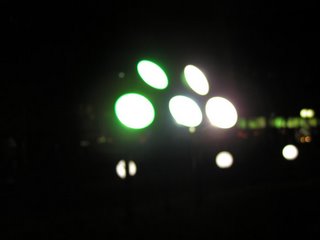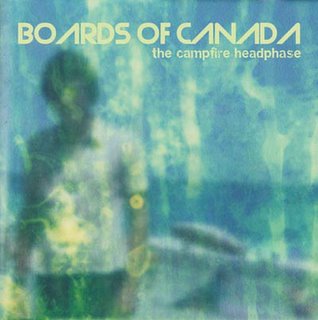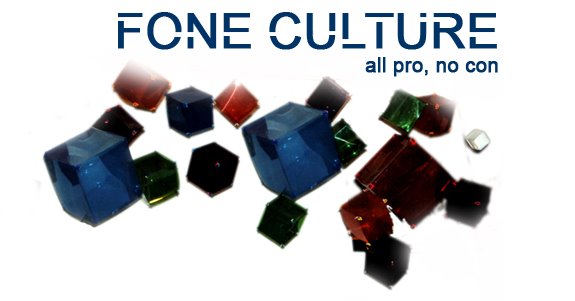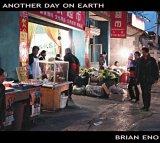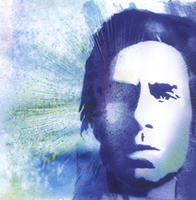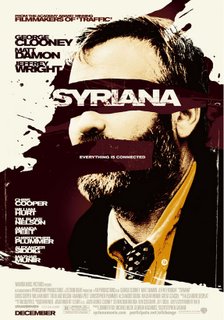Not much time to write. Doing this at work. Could be caught any minute... Here are some great tracks I've been listening to lately.
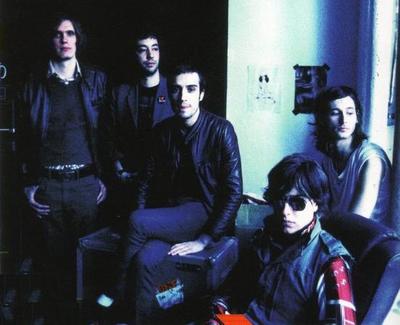
1.
The Strokes - Juicebox. Bad sign: my friend Rod says over the phone, "Have you heard the new Strokes? I heard it on the radio. It started with this green day riff (makes a buzzy guitar riff sound like the Peter Gunn theme). I turned it off before he even started singing." He was wrong. It starts off with more of an Offspring (90s radio band who are currently being tried in the Hague for musical atrocities) riff. But then... oh, but then.
The song is a visceral, hungry jackal of angular rock. If you ask yourself, as I do from time to time, "Is there any place in my life for rock? Does 'being rocked' have any meaning anymore for me?" this may resolve the issue for you, as it did for me, speeding down I-696 last night. For starters, we get to hear singer Julian Casablancas with less of that damn filtered effect he's been using as a crutch; it's like taking the airbrush off a truly beautiful person who didn't need it in the first place. This song has several sections, as if the band had too many good ideas to chose from (always a good sign) each of which is better than the last. I hated the second Strokes album. I didn't want more of the same. I wanted them to do this, which is to change and broaden their sound, if only moderately. I think this is a major step forward. I hear new things every time I listen to this track. [As much as I love it, though, nothing can redeem the opening riff, or the Offspring for that matter.]
The Strokes - Juicebox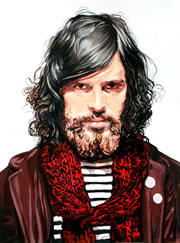
2.
Devendra Banhart - Now That I Know. There's something about Banhart that is greater than the sum of his parts. His voice is trembly to the point of silliness, his lyrics are whimsical and absurd in good and bad ways and... he's a hippy. I made war on anything hippy many years ago. That is, I made war, not love. But it's like the initial experience I had with Rufus Wainwright. I was repelled and drawn in at the same time. That's a rare thing for me and I guess I kind of like it. Because eventually you're just drawn in. I grew to love Rufus and I'm growing to love Banhart. My war with the hippies may be coming to an end at last. The first two Banhart records (Rejoicing in the Hands and Nino Rojo) were recorded in the same sessions and were lo-fi, but in a perfect way. He experienced a lot of quick success from those and the resulting touring has strengthened his performance skills and filled out his voice. His new record,
Cripple Crow, is a full production based around solo Banhart performances, with great sounds and great choices of overdubs.
Now That I Know opens the record and is sad in that long, wide way that train tracks, dusk and migrating birds are.
Devendra Banhart - Now That I Know
3.
The Elanors - The Song About the Sea (demo). The Elanors are a Champaign, Ill. duo I've been producing and recording. Their names are Noah and Adriel. They might be famous one day, but to me they're already world-class. We were about a week into tracking, at my home, and had stopped for a dinner break and so that I could show them how I've taken the playing of Tetris to an art form. As King Saul commanded to David in the Bible, I said to Noah, "Play me a song. Let it be a new song, one that I've never heard." Noah turned the electric piano on and sang me a quiet song about the sea – by the time he finished, he had chased all of the demons out of the room and we sat in stillness. During this performance, I know my hands were making unprecedented, impossibly deft moves on the joystick, but my mind had left the room and a romanticized version of my adolescence flashed before my eyes - Hemingway, Baltimore harbor, my first crush, a picnic for two who were still kids, and all that dumb brilliance.
I tried to convince Noah to put the song on the record. He said, no, it was part of a new world of songs he was stepping into, and he didn't want to mix it up with the past, so the best I could do was set a mic up and get him to sing it in my living room. We used a cheap mic for a rich voice. You can hear the crickets. It was so hot that week.
The Elanors - The Song About the Sea (demo)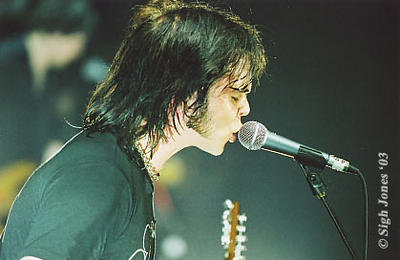
4.
Supergrass - Roxy. The reason I know I'm a nerd is because there's a test for this. The essence of nerdishness is the desire to make lists. One of the few lists I've made in my head is greatest working songwriters. I don't really include some of the old guys who can still bring it like Elvis Costello and Tom Waits. It's more the songwriters of my generation, still killing it. That list is short. Ellliott Smith was on it, at the top. The others are Gillian Welch, Rufus Wainwright, Thom Yorke (though he's more of a composer of exquisite music with infantile lyrics), and Gaz Coombes. Coombes is my dark horse because, while some of my peers are familiar with Supergrass, even fewer know their lead singer by name. Supergrass broke during the mid-90s Britpop movement. There were a lot of tight bands then and a returned emphasis on songwriting. Oasis, Pulp, Blur, etc. Out of the groups I was listening to then, Supergrass is the only one I still follow. Here's the thing about Gaz Coombes. The guy simply CAN'T write a bad tune. Even if you're not feeling the aesthetic of one of their songs, you can't argue with the tune. And I don't mean simply that they're catchy, or "well-crafted". What I'm talking about is beyond memorability or technique. He's the real thing. Coombes has a weird, pretty voice that has a bit of a helium sparkle to it on top of the throaty power. To me, as a singer he's on par with Yorke or Chris Martin.
There. I needed to finally talk about Supergrass. They do alright, especially overseas, but to me they will always be underrated because I hold them in such high esteem. After talking them up like that, maybe the new record
Road to Rouen, isn't the place to start because people are saying it's the "mature" record. But what the hell.
Supergrass - Roxy
